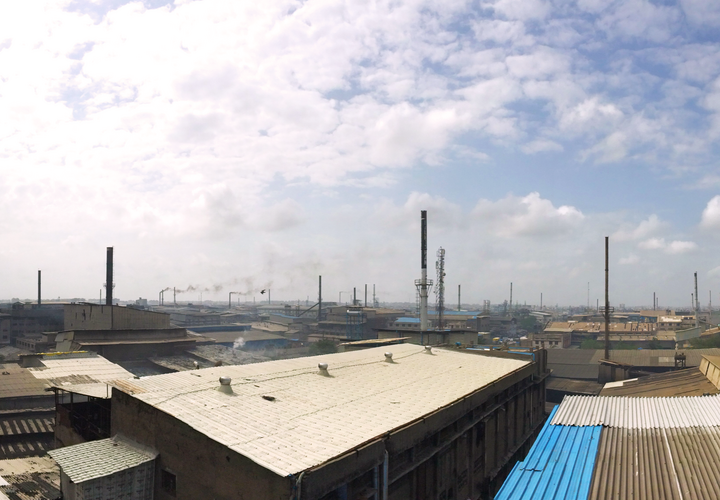EGC's Pande & Ryan collaborate with policy-research team to plan carbon trading in India
The cap-and-trade market will be the first of its kind among emerging economies, outside of China. Researchers from EGC, University of Chicago, and J-PAL will help design the program, allowing the state of Gujarat to tap global expertise.

To encourage an energy transition and ensure climate-friendly economic growth, the Government of Gujarat, India is planning to implement a cap-and-trade market for carbon emissions from large sources. The market will allow industries and power plants in the state to trade CO2 permits and an overall cap will provide the government a flexible tool to meet climate goals. The market will be the first of its kind among today’s emerging economies, outside of China.
"The cap-and-trade market is a vital part of Gujarat's climate strategy, and a vital part of our economic strategy. With the introduction of this carbon market, Gujarat is continuing its legacy of pioneering innovative policy solutions, leading the way for others to follow in India and throughout the world."
– Gujarat Chief Minister Bhupendrabhai Patel
The Gujarat carbon market leverages the state’s own experience in running the world’s first emissions trading market for particulate pollution, which began in the city of Surat in 2019. Since its launch, the Surat pollution market—which won a prestigious SKOCH award for the Best Governance Initiative this year—has reduced particulate emissions in the city by about 24 percent without any measured increase in industry operating costs. The program is now expanding to other cities within Gujarat and beyond.
Gujarat also led the way to improved environmental audits that have systematically reduced pollution in the state. The audit guidelines require environmental auditors to be randomly assigned to industrial plants and have their work double-checked for accuracy. The reforms came after a large-scale impact study showed the changes reduced pollution by 28 percent. The Government of India has said that the Gujarat reforms made for a compelling case for other states.
A team of researchers from the Energy Policy Institute at the University of Chicago (EPIC), Yale Economic Growth Center, and the Abdul Latif Jameel Poverty Action Lab (J-PAL) will assist the Gujarat government in designing the CO2 market.
"Markets can reduce pollution without slowing economic growth and poverty reduction. Gujarat has set a global example by starting a market for particulate matter emissions. I hope the new carbon market will have similar success."
– Nicholas Ryan, a co-researcher and Assistant Professor of Economics, Yale University
"As countries begin to experience the impacts of climate change firsthand, a critical challenge is to find ways to reduce carbon emissions without unduly hampering economic growth or poverty alleviation. Gujarat’s leadership in this regard could provide an example for the world."
– Rohini Pande, a co-researcher and the Henry J. Heinz II Professor of Economics and director of the Economic Growth Center at Yale University
"Just as California has paved the way for environmental and climate progress throughout the United States, Gujarat is proving to be a trailblazer in India."
– Michael Greenstone, a lead project researcher; Milton Friedman Distinguished Service Professor in Economics, University of Chicago; Director, EPIC